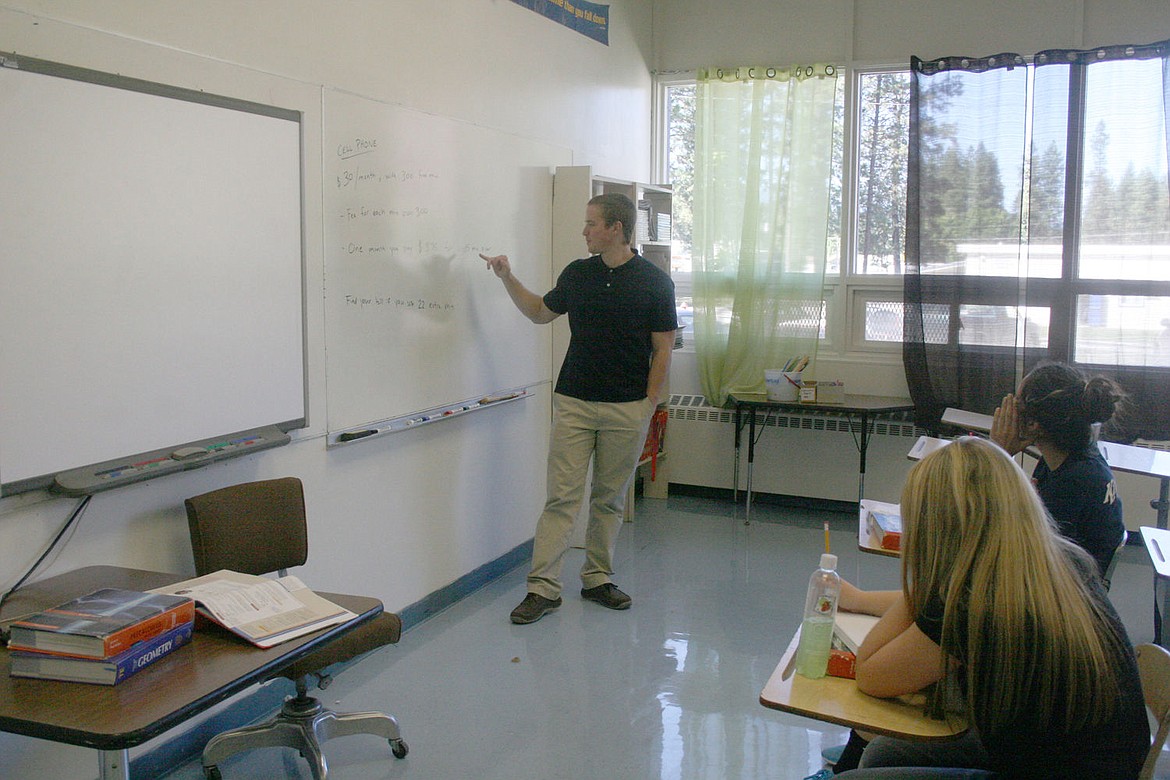Plugging the brain drain
SUPERIOR – As other rural communities across the country experience a phenomenon known as “rural brain drain,”when 18 to 25 year old residents leave their hometowns for higher education and never return, Mineral County is experiencing exactly the opposite in one case.
Brain drain is a well-known socioeconomic term that refers to the migration of educated people to places that pay higher wages resulting in the loss or “drain” of skilled people in the place they came from.
In an example of rural brain gain, one young person has returned to the area after graduating college and is putting his education to work for students in the Superior School District.
Teaching mathematics to students from seventh to twelfth grade, Peter Waldy may not look much older than some of his students but that’s only because this is his first job out of college. At the age of 23, Waldy had the opportunity to go other places but he chose to return to a region he used to call home.
“I grew up in Plains for awhile,” Waldy said. “I felt like this school would be a good fit for me. I really like the administration and the way they do things here.”
Waldy, who graduated from the University of Montana, said the chance to work in a small school district afforded him a variety of opportunities he wouldn’t have at a larger district in a larger community. He did say a smaller district was not without challenges.
“There are less kids here but more subjects to teach,” Waldy said. “So that’s been different for me. These first few weeks will be tough but I think it will make me a better teacher down the road.”
The advantage of fewer students, according to Waldy, is he can interact with pupils who may be struggling with a concept. He said the ability to work more closely with students allows him to help concepts make sense. During his time student teaching, class sizes ranged from 25 to 30 students. In Superior, his largest class is 14 students.
“I have more one-on-one time with them,” Waldy said. “With a bigger class, you could be the best teacher in the world, but if something is not registering with a kid, he’s not going to get it unless you are there with him one-on-one. Here, it’s easier to help those kids that need it.”
While familiar with the concept of rural brain drain and aware of the challenges faced by other communities dealing with the loss of educated people, Superior School District Superintendent Scott Kinney said it wasn’t as big of a problem in his district. Kinney said there were at least a dozen examples of Superior teachers that have come back to the area.
“It is a concern but we’ve been very fortunate here,” Kinney said. “It has been popular for teachers from Montana in the past to move to places like Arizona and Las Vegas with booming economies that are building schools left and right and paying them higher salaries. The cost of that is, you have highly educated, highly intelligent and highly dedicated people leaving the state. But we’re very lucky to have people come back here and stay.”
According to an article published in the Chronicle of Higher Education and written by Patrick J. Carr and Maria J. Kefalas, two sociologists who studied the phenomenon of rural brain drain for 18 months in a small town like Superior, the migration of college educated young people to urban areas has been going on for years.
The Chronicle is an award winning online scholarly journal that examines issues regarding higher education in the U.S. The article, called “The Rural Brain Drain,” states, “the shortage of young people has reached a tipping point and its consequences are more severe now than ever before.”
The article further states, “the flight of so many young people is transforming rural communities throughout the nation into impoverished ghost towns. A new birth simply cannot replace the loss that results every time a college-educated twenty-something on the verge of becoming a worker, taxpayer, homeowner or parent leaves.”
In Mineral County, at least one college-educated twenty-something is trying, even if he doesn’t know it, to stem the flow and plug the brain drain. Waldy said he is here to start his career and doesn’t plan on going anywhere for a while.
“I want to make an impact on these kids,” Waldy said. “I want my classroom to be a place where they can come and learn and feel welcome and feel like it’s a place they want to be. I want to be a mentor and a role model.”

